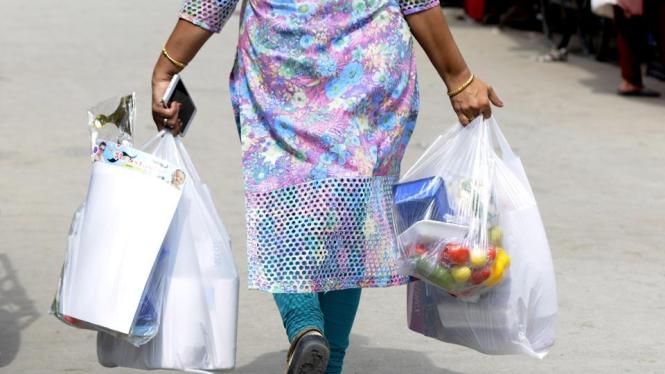
Bhopal- the capital of Madhya Pradesh is said to won the No. 2 spot in the cleanest city in India category under Swachh Bharat Mission.
The CM of MP, Mr Shivraj Singh Chouhan had announced the decision to ban the polythene bags in the state on January 26. On April 11, a cabinet meeting endorsed the decision.
Earlier too, on May 21, 2015, the chief minister had announced to impose the ban on polythene bags from January 1, 2016. Every time the government announced its decision to ban polythene bags, it creates confusion among people and those involved in the plastic industry, from manufacturing to distributors.
Meanwhile, minister for environment Antar Singh Arya said carry bags would be “banned completely” in Madhya Pradesh by May 9-10.
But the polythene was never actually banned in MP although there is a huge requirement of banning the polythene. Plastic bags are a convenient way to carry our purchased goods when we go shopping. They are a part of our modern lives, and we don’t tend to think much about them. However, this convenience of plastic shopping bags carries with it a very high cost to the environment and also negatively affects human health.
Because there are so many negative impacts from the use of plastic shopping bags, many cities and countries from around the world have already put plastic bag bans in place. The following are a number of reasons why local and national governments should consider instituting bans on plastic bags.
- Plastic bags pollute our land and water. Because they are so lightweight, plastic bags can travel long distances by wind and water. They litter our landscapes, get caught in fences and trees, float around in waterways, and can eventually make their way into the world’s oceans.
- Plastic bags are made from non-renewable resources and contribute to climate change. The production of these bags is also very energy intensive. To produce nine plastic bags, it takes the equivalent energy to drive a car one kilometer
- Plastic bags never break down. Petroleum-based plastic bags do not truly degrade. What does occur is that when out in the environment, the plastic breaks up into tiny little pieces that end up in the ocean to be consumed by wildlife. Today, there are an estimated 46,000-1,000,000 plastic fragments floating within every square mile of our world’s oceans.
- Plastic bags are harmful to wildlife and marine life. Plastic bags and their associated plastic pieces are often mistaken for food by animals, birds, and marine life like fish and sea turtles. The consumed plastic then congests the digestive tracts of these animals and can lead to health issues such as infections and even death by suffocation. Animals can also easily become entangled in this plastic.
- Plastic bags are harmful to human health. When marine organisms consume plastics in our oceans, these chemicals can make their way through the ocean’s food web and then into humans who eat fish and other marine organisms.
- Plastic bags are costly to pay for and to clean up after. While we may not pay for plastic bags directly when we go shopping, they are anything but “free.” The cost of plastic bag cleanup is about Rs.11 per bag, and on average, taxpayers end up paying about Rs.5650 per year just on plastic bag waste. So that “free” plastic bag isn’t so free after all.
- Plastic bags are not easy to recycle.
- Plastic bags have external costs.. These costs include the true environmental costs of resource extraction and depletion, quality of life loss, economic loss from littering, and wildlife loss. Sadly, such costs are typically not included in most economic analyses, but nonetheless, these negative impacts are very real.
- There are better alternatives available, and jobs to go with them! Once a person gets into the habit of bringing reusable bags when shopping, it is not much of an inconvenience at all. Reusable shopping bags are very durable and can be reused many times over the course of their useful life. The manufacturing of reusable bags is also another opportunity to create sustainable products and the jobs that go with them.
- Other governments are banning plastic bags, so ours should too… or at least make people pay for them. To date, more than 40 countries and municipalities around the world have instituted plastic bag bans.
The Swachh Bharat Mission is incomplete without the ban of plastic in India. We need to solve the primary and the most dangerous issue first then we can focus on subjects like clean India campaign. While the government can choose to ignore this plea as it doesn’t involve any revenues but we as a responsible citizen can stop using the plastic completely.
Let’s pledge that we will make a fine-looking India free from plastics…